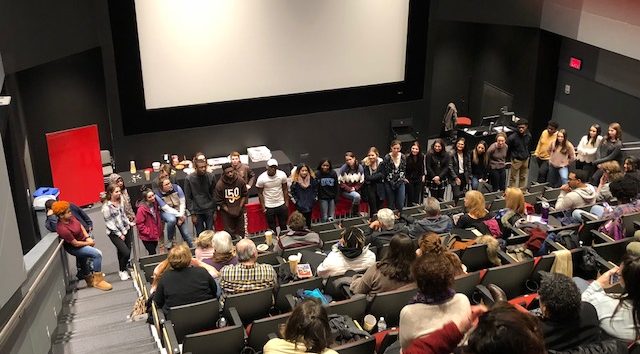Cameraperson (Johnson, 2016) director’s statement included some ideas I have thought about but never put down on paper. One of her challenges being a documentarian is,” The people I film are in immediate and often desperate material need, but I offer little to nothing material.” This is something I have always thought about when I watch documentaries or think about making my own. For example in my poverty in America class we watched a documentary about multiple families living in poverty and as the audience, you want to help them and know if the filmmakers did something to aid them after filming. Filming people in need is sensitive because you are using them for your benefit and then leaving. However, I do think that by filming their story and giving them a voice, you are giving them something invaluable and raising awareness about their critical situation. Another bullet point said,”I can and will leave a place I film (a war, a refugee camp, etc.) when the people I film cannot.” Reading this is heartbreaking but it’s the harsh reality. Filmmakers sometimes go to locations where the environment (like extreme heat) damages their cameras, yet people have to labor in those conditions the whole day. At the end of the day the filmmakers can get up and leave, with equipment and all, but the people they film cannot. Johnson also mentions,”My work requires trust, demands intimacy, and entails total attention. To both me and the people I film, it often feels like a friendship or family, but it is something different.” This reminded me of how someone in my class said that they went to take photos/videos in a women’s shelter, but before they even introduced the camera they volunteered there for a couple of weeks to build a relationship with the women there. I think that’s the right way to do things because if you just pull out a camera on a stranger you aren’t going to have that “intimacy” with them, it won’t feel raw or real. Lastly, I checked off the bullet point that states,” My work can change the way my subject is perceived by the people who surround him/ her and can impact reputation or safety for years in the future.” As a person who has been behind and in front of the camera I know how powerful documentary can be. There are lots of complications and precautions that come with documentary because like Johnson says you can portray someone in a way that they’re unhappy with, or that can cause negative outcomes in many people’s lives. You can’t just go over your edits once but you have to go over them a million times and think of how it will be received by multiple people. A documentary has so much power and with power comes responsibility. As a filmmaker, my goal is to make a positive change or raise awareness about the subject I’m about to record.
